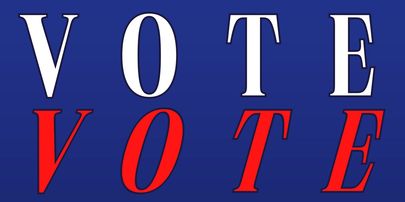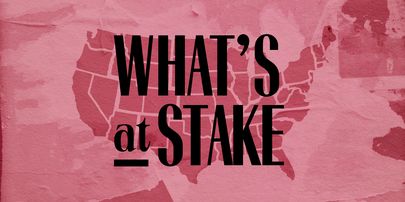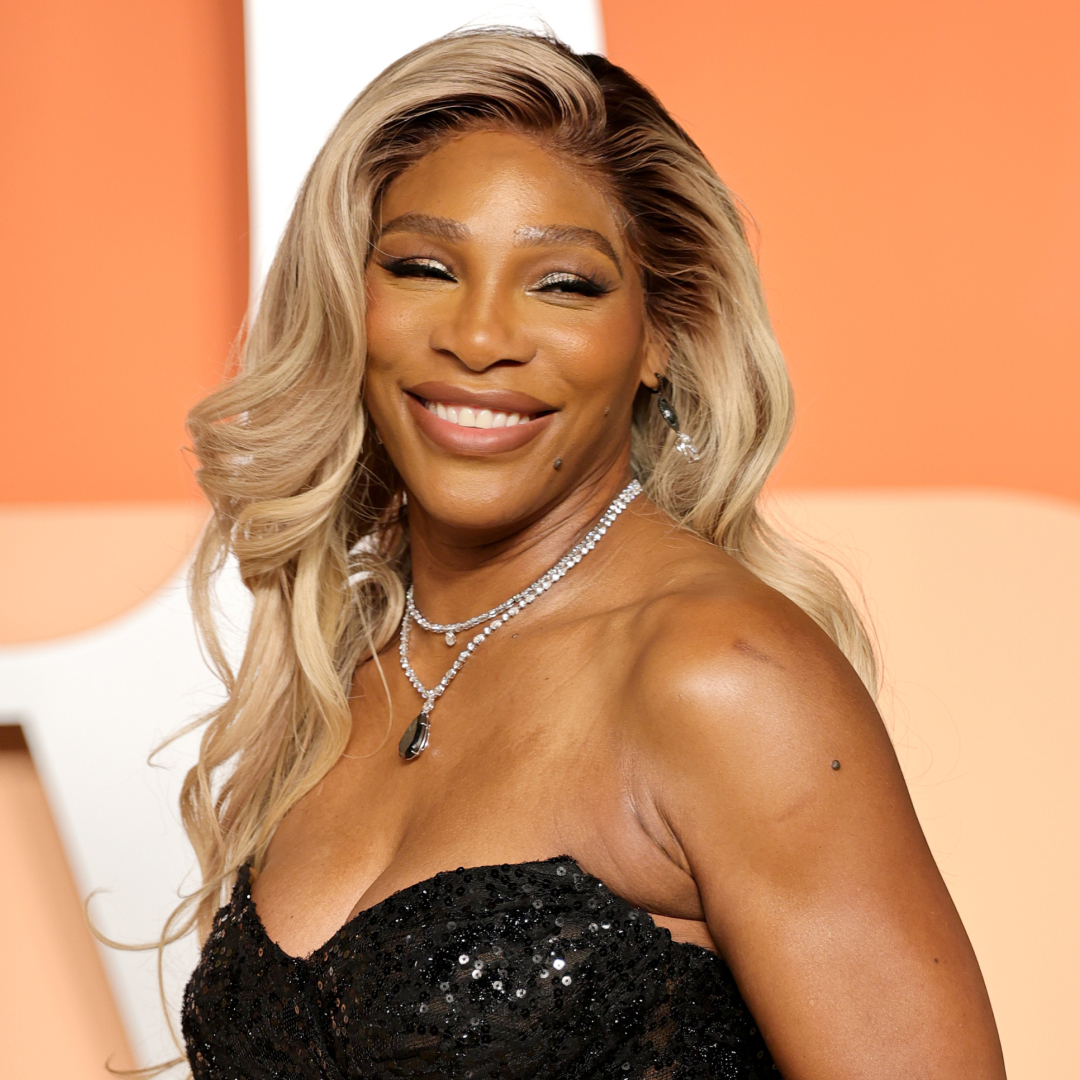I'm DACA Eligible. My Future Is at Stake This Election
Like many undocumented youth, M.B.F. is waiting for her DACA application to go through. Here, what a Trump reelection could mean for her.


The subject of this article, known as "M.B.F." to protect her identity, is one of nine DACA-eligible New Yorkers who are individual plaintiffs in a lawsuit filed against the Trump administration. The lawsuit is the first legal challenge to the full memo issued on July 28, 2020, by acting Secretary of Homeland Security Chad Wolf to dismantle Deferred Action for Childhood Arrivals (DACA), despite the Supreme Court ruling in favor of the program on June 18, 2020. The memo directs the U.S. Citizenship and Immigration Services (USCIS) to reject all first-time DACA applications, to reject all requests by DACA recipients for permission to travel outside the U.S. through advance parole except in extremely narrow circumstances, and to shorten renewals and work authorization to one year. Here, 18-year-old M.B.F. shares, in her own words, how she's coping with the Trump administration's attack on DACA and what this election could mean for her future.
I moved from the Dominican Republic to Queens, New York, when I was four years old. Because I was very young, I don't recall much about how it was transitioning [to live] here, but I consider this my home. It's the only home that I've ever known. I found out that I was undocumented in high school. I wanted to apply to jobs because my friends were applying. Then my mom told me that I couldn't. It was just so heartbreaking to hear—I was in a state of shock. I didn't believe my mom when she told me. I just remember thinking, Well, there goes the rest of my life that I had planned. Now, I have to make up another life scenario, where I don't live here anymore. It was just unbelievable to me. Like, What do you mean I don't live here? What do you mean I can't [get a job]? I felt useless.
I found out the Trump administration was trying to terminate DACA [in 2017] a few days before I turned 15—the year I was eligible to apply to the program. I didn't really understand it until my mom explained it to me. My mom was preparing some folders of my paperwork from school and stuff. I remember asking her, "Is this for what you said? Can I work now?" But once I found out that I could apply, it was too late. My mom told me that we were going to fight this and there were other people who were going to fight this too.
After hearing that the Supreme Court ruled [in favor of DACA] over the summer, I was so excited. I had just come home from school, and the first thing I did was call my mother. My mom came home [from work] and she called our lawyers to make sure that there wasn't anything wrong with me applying. By the time I heard about the new memo against DACA, I had already submitted my paperwork. My mom was still hopeful, but in my head I was like, Well, once again, another stone thrown at me. I felt useless—again. Recently, I received a notice in the mail to appear in immigration court. If I don't receive DACA by the time I'm 18-and-a-half [in March 2021], I'll have to leave the country.
Before I found out I was undocumented, I remember joining my school's debate club and we would talk about how I couldn't wait until my vote counted. It's very upsetting that I can't go out and vote officially. But, thankfully, most of my friends are. So, I've just been guiding them and motivating them. They themselves have the motivation and drive to go out and vote for me because they know my situation and they take it personally. My whole life is at stake in this election. Whatever happens dictates how I move forward. My whole future. The country's future. It feels like I'm in a movie, and this is the cliffhanger.
My whole life is at stake in this election. Whatever happens dictates how I move forward.
As soon as I found out about [the immigrant youth lawsuit], I wanted to join [as a plaintiff]. This way, I can help fight for what I believe in, since I can't go out and vote. I've always wanted to be a lawyer, which is what I'm studying for at college. I'm hoping that we win the lawsuit, and that we can finally gain the respect that we've been fighting for, the rights that we've been fighting for.
The past three years have definitely been a roller coaster full of ups and downs, but more downs. Even though we're still not at the end of it, I'm hopeful. I would definitely go through this again if it means that I can help other people, as well as myself. I'm just hoping for a better outcome. In the meantime, I've been sharing posts through social media and keeping up with the debates. I've also been speaking to people that may have some doubts [about voting].
Stay In The Know
Get exclusive access to fashion and beauty trends, hot-off-the-press celebrity news, and more.
In terms of DACA itself, I hope that it will be able to accept first-time applicants and we can keep the program open for people who do have it, so that many other people like me have the opportunity to dream. I would tell other undocumented immigrants waiting to become DACA eligible to keep fighting and keep hoping. Don't fall under the idea that your life is over, like I did. Keep believing. In the end, we will see the light.
For immigrant legal resources, click here and here. You can also help fund the fight for DACA by donating to organizations like United We Dream, TheDream.US, and Make the Road New York.
Related Stories


Rachel Epstein is a writer, editor, and content strategist based in New York City. Most recently, she was the Managing Editor at Coveteur, where she oversaw the site’s day-to-day editorial operations. Previously, she was an editor at Marie Claire, where she wrote and edited culture, politics, and lifestyle stories ranging from op-eds to profiles to ambitious packages. She also launched and managed the site’s virtual book club, #ReadWithMC. Offline, she’s likely watching a Heat game or finding a new coffee shop.
-
 Serena Williams Avoided Taylor Swift at the Super Bowl for One Important Reason
Serena Williams Avoided Taylor Swift at the Super Bowl for One Important ReasonSorry, Olympia. You'll have to get that autograph next time.
By Lia Beck
-
 Hailey Bieber Styles a Bubble-Hem Trench as a Mini Dress
Hailey Bieber Styles a Bubble-Hem Trench as a Mini DressShe's a styling genius.
By Kelsey Stiegman
-
 Jennifer Lopez's Free People Shout-Out Is Going Viral
Jennifer Lopez's Free People Shout-Out Is Going ViralBut not for the reasons you'd expect.
By Halie LeSavage
-
 36 Ways Women Still Aren't Equal to Men
36 Ways Women Still Aren't Equal to MenFeatures It's just one of the many ways women still aren't equal to men.
By Brooke Knappenberger
-
 How New York's First Female Governor Plans to Fight for Women If Reelected
How New York's First Female Governor Plans to Fight for Women If ReelectedKathy Hochul twice came to power because men resigned amid sexual harassment scandals. Here, how she's leading differently.
By Emily Tisch Sussman
-
 Why the 2022 Midterm Elections Are So Critical
Why the 2022 Midterm Elections Are So CriticalAs we blaze through a highly charged midterm election season, Swing Left Executive Director Yasmin Radjy highlights rising stars who are fighting for women’s rights.
By Tanya Benedicto Klich
-
 Tammy Duckworth: 'I’m Mad as Hell' About the Lack of Federal Action on Gun Safety
Tammy Duckworth: 'I’m Mad as Hell' About the Lack of Federal Action on Gun SafetyThe Illinois Senator won't let the memory of the Highland Park shooting just fade away.
By Sen. Tammy Duckworth
-
 Roe Is Gone. We Have to Keep Fighting.
Roe Is Gone. We Have to Keep Fighting.How To Democracy always offers a path forward even when we feel thrust into the past.
By Beth Silvers and Sarah Stewart Holland, hosts of Pantsuit Politics Podcast
-
 The Supreme Court's Mississippi Abortion Rights Case: What to Know
The Supreme Court's Mississippi Abortion Rights Case: What to KnowThe case could threaten Roe v. Wade.
By Megan DiTrolio
-
 Sex Trafficking Victims Are Being Punished. A New Law Could Change That.
Sex Trafficking Victims Are Being Punished. A New Law Could Change That.Victims of sexual abuse are quietly criminalized. Sara's Law protects kids that fight back.
By Dr. Devin J. Buckley and Erin Regan
-
 My Family and I Live in Navajo Nation. We Don't Have Access to Clean Running Water
My Family and I Live in Navajo Nation. We Don't Have Access to Clean Running Water"They say that the United States is one of the wealthiest countries in the world. Why are citizens still living with no access to clean water?"
By Amanda L. As Told To Rachel Epstein